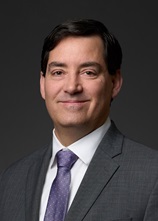Healthcare Update
U.S. DOJ Announces Renewal of FCA Working Group
On July 2, 2025, the U.S. Department of Justice (DOJ) announced the renewal of the DOJ-HHS False Claims Act Working Group (Working Group), a partnership with the U.S. Department of Health and Human Services (HHS) that aims to strengthen use of the False Claims Act (FCA) to combat healthcare fraud. The Working Group will be jointly led by HHS’ General Counsel, the Chief Counsel to the HHS Office of Inspector General (HHS-OIG), and DOJ’s Deputy Assistant Attorney General of the Commercial Litigation Branch. The group’s membership will include leadership from the Centers for Medicare & Medicaid Services Center for Program Integrity and designees from U.S. Attorneys’ Offices. This is an initiative announced in December 2020 during the first Trump administration and follows the announcement of significant personnel changes at DOJ, as discussed here.
The first iteration of the Working Group was focused on healthcare fraud related to the funds distributed by HHS to combat the Covid-19 pandemic. The enforcement priorities of this iteration of the Working Group are very different. First, they include a pair of FCA targets announced in a June 11 memorandum issued by DOJ: (1) diversity, equity, and inclusion (DEI) programs and (2) gender transition care.
As we addressed here, ending unlawful DEI programs has been a key focus of the Trump administration, and, through two executive orders issued earlier this year, President Donald Trump expressly tied FCA liability to such programs. Regarding gender transition care, we addressed here how DOJ intends to use the FCA to target pharmaceutical companies manufacturing “drugs used in connection with” gender transition care and healthcare providers performing such services.
In addition to these two targets, the Working Group will focus on the following areas:
- “Medicare Advantage”
- “Drug, device, and biologics pricing, including arrangements involving discounts, rebates, service fees, formulary placement, and price reporting”
- “Barriers to patient access, including violations of network adequacy requirements”
- “Kickbacks related to drugs, medical devices, durable medical equipment, and other products paid for by federal healthcare programs”
- “Materially defective medical devices that impact patient safety”
- “Manipulation of Electronic Health Records (EHR) systems to drive inappropriate utilization of Medicare covered products and services”
Among these priorities, it is unsurprising to see Medicare Advantage listed first. Medicare Advantage fraud has been a longstanding priority for DOJ, and, as we addressed here, efforts to combat such fraud have only continued to intensify under the Trump administration.
In contrast, some of the other areas of enforcement priority for the Working Group are newer or evolving. For example, “barriers to patient access” have not previously been an area of focus for FCA enforcement, and it remains to be seen how DOJ will advance enforcement in that area. The discussion of this element does, however, suggest a particular enforcement concern focused on health insurers, which is consistent with DOJ’s filing of an FCA complaint in May 2025 against three health insurance companies alleging unlawful kickbacks and discrimination against disabled individuals. And while pharmaceutical companies have long been scrutinized by DOJ under the FCA related to drug pricing arrangements, the second area of focus for the Working Group is consistent with more emerging enforcement scrutiny by states and the federal government of rebating practices by prescription drug benefit managers, including as pursued by the Federal Trade Commission in a recent lawsuit. Finally, while there has been significant focus over the last decade under the FCA on EHR vendors, as discussed here, the inclusion of this area as a priority for the Working Group likely relates to increasing concerns about the development and use of artificial intelligence to drive clinical decisions.
Meanwhile, other areas of focus are longtime mainstays of FCA enforcement activity. Alleged kickback arrangements typically drive over half of the $3 billion+ annual FCA recoveries announced by DOJ, and product defects with resulting patient harm have long driven DOJ to take enforcement action.
The Working Group intends to expedite ongoing investigations in the target areas and to “identify new leads” by “leveraging HHS resources through enhanced data mining and assessment of HHS and HHS-OIG report findings.” This is consistent with an emerging trend over the past five years in which we have seen DOJ bring an increasing number of FCA actions directly rather than relying exclusively on whistleblowers. The announcement makes clear that the healthcare and life sciences industry should prepare to see a sharper increase in agency-initiated, data-driven enforcement actions. That said, the announcement concludes by encouraging whistleblowers to identify and report FCA violations, so qui tam complaints will likely continue to be a key driver of enforcement actions. Based on the Centers for Medicare & Medicaid Services’ recent announcement that it intends to significantly expand Medicare Advantage audits, Medicare Advantage plans may be a particular target of these data-driven enforcement actions.
The announcement also specifies that the Working Group will discuss when to implement payment suspensions and when to move to dismiss whistleblower-initiated cases under 31 U.S.C. § 3730(c)(2)(A). We recently provided insight on how DOJ is exercising its (c)(2)(A) dismissal authority here, and we expect that this Working Group may provide further insight into that question.
In sum, the revival of the Working Group signals that DOJ intends to continue its aggressive enforcement against healthcare fraud but will take a more advanced, focused, and cooperative approach to that enforcement. Companies in the healthcare industry, particularly those operating in the Working Group’s designated target areas, should pay careful attention to any further announcements from the Working Group and monitor any publicized enforcement efforts. And companies that become subject to FCA enforcement actions should carefully consider how best to leverage the increased coordination between DOJ and HHS in appropriate cases and involve lawyers on the Working Group with particular knowledge of relevant regulatory issues and who may be sympathetic to arguments about falsity and materiality that have previously been difficult to advance with DOJ line lawyers alone.
Attorney Advertising—Sidley Austin LLP is a global law firm. Our addresses and contact information can be found at www.sidley.com/en/locations/offices.
Sidley provides this information as a service to clients and other friends for educational purposes only. It should not be construed or relied on as legal advice or to create a lawyer-client relationship. Readers should not act upon this information without seeking advice from professional advisers. Sidley and Sidley Austin refer to Sidley Austin LLP and affiliated partnerships as explained at www.sidley.com/disclaimer.
© Sidley Austin LLP
Contacts


Related Resources
Capabilities
Suggested News & Insights
- Stay Up To DateSubscribe to Sidley Publications
- Follow Sidley on Social MediaSocial Media Directory



